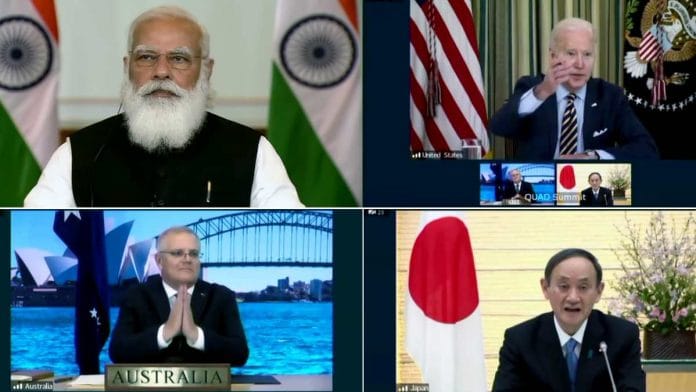Prime Minister Modi’s visit to Washington in September to attend the first in-person meeting of QUAD has been the talk of the town lately. The summit gave buzzwords in the diplomatic conclaves like ‘largest and oldest democracies’, ‘shared goals of free and open Indo Pacific’, ‘equal access to vaccines’—all emphasising and highlighting the democratic ‘culture’ and ‘traditions’ of the QUAD members.
The strategic convergence of USA and India, primarily against China, is presented to the general public- the citizens as a result ‘shared culture’ in which the natural allies were destined to come together. Often leaders evoke cultural symbolism as a tool to present their views and gain legitimacy for their policies.
So, in this everchanging world, do we see cultural congruency a pre-requisite to forge alliances? Is Cultural conformity necessary for stable alliances? Or the military and economy interest the game breaker?
The ‘holy’ alliances
The recent developments such as the formation of AUKUS, a trilateral security pact between USA, UK and Australia and the summit of QUAD, expresses democratic congruency as opposed to the authoritarian Chinese culture.
In a bid to express their autonomy to the world, states often run for power- both individually and collectively. Power can be exercised in different ways- military, economic or cultural. Often, the former two are interlinked as strong economic base transforms into military might. But it is the cultural hegemony that establishes ‘order’ and ‘acceptance’. The strongest facet of cultural hegemony is that it is exercised on the subconscious mind of the human beings. It can do wonders for the powerful by bringing profits and preventing the outbreak of actual wars because of the clout of the invincibility the hegemon produces, until it is challenged seriously.
The USA enjoyed this influence since the end of cold war until it was challenged by the China.
The ‘unholy’ alliances
Looking from this perspective, the China-Pakistan axis has some serious flaws in it. Pakistan, which has always cried for the rights of Indian Muslims in Kashmir turns deaf when it comes to the sufferings of Uyghur Muslims in the Xin Jiang province. The underlying cause for it being the economic interests served by CPEC. Militarily too, China provides strength vis a vis India. Thus, the army state is even ready to use force to suppress the protests in the north west of Pakistan against Chinese interventions.
Breaking off ‘unholy alliances’.
The break off in Australian foreign policy by shifting to cultural symbolism by joining AUKUS is the most recent development that establishes the need of cultural similarity in military alliances. The security pact comes in the wake of heavy dependence of coal producers of Australia on the Chinese industries. In fact, Australia had the largest trade deficit with China of about A$58 billion in 2018-19 that can potentially harm its economic interests. Still, the cultural alliance seems to be bypassing the economic.
The matrix of global politics
The matrix of global politics is far and wide. It is a continuous machine that accepts, rejects, evolves and produces result. Reality is often complex with multiple actors and dimensions present at the hindsight to shape it. Only one thing can be said with certainty—one who understands the dice, becomes the master.
Nikita Verma is a student of Kirori Mal College, Delhi University







